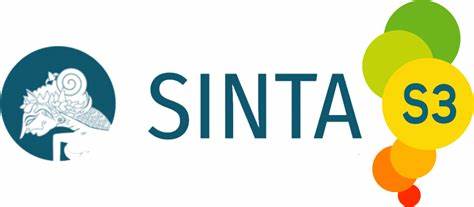THE INFLUENCE OF STUDENT’S LEARNING STYLE ON THEIR SPEAKING ABILITY AT CLASS IX OF MTs MUSLIMIN PEUSING BANDUNG BARAT
DOI:
https://doi.org/10.22460/eltin.v3i1.p%25pAbstract
In Indonesia, particularly in MTs Muslimin Peusing, it is still very difficult for students to communicate with other people in English effectively. Furthermore the ineffective teaching learning activities can adversely influence students’ speaking ability . One of important factors contributing to this phenomenon is that the teacher's teaching style that does not match the learning styles of learners. The objectives of the research are to identify whether students' learning styles influence of speaking ability at class IX of MTs Muslimin Peusing Bandung Barat and to find out which learning style is the best in learning speaking skill. In the research design, the writer used quantitative research, or more specially the survey method which consist of two classes (40 students) as the sample. Questionnaire and test were as the instruments. Data analysis shows that there is no significant difference among students’ speaking ability based on their learning styles because the data clearly reports that all the result of significance value are higher than 0.05. Meanwhile, to have the significant difference, the sig, value or significance value should lower than 0.05. The conclusion is the best speaking score is individual learner from other learning styles, and there is no significant difference between learning style on their speaking ability.
Â
Keywords : Learning Styles, Speaking ability.References
Chaney, A.L, & T.L Burk. (1998). Teaching oral communication in grades k-8. Boston: Allyn & Bacon.
Cohen, L, Lawrence Manion & Keith Morrison. (2007). Research methods in education. London & New York : Routledge.
Corder, Gregory & Dale I. Foreman. (2014). Nonparametric Statistics: A Step by Step Approach. John Wiley & Sons.
David Kolb, in Doris B. Matthews. (1996). An investigation of learning styles and perceived academic achievement for high school students, Taylor and Francis Group.
Ghufron, M. Nur, S. Risnawita, S. and Rini. (2010). Teori-teori psikologi. Yogyakarta: Ar-ruz Media Group.
Harmer,J. (2001). The Practice of English language teaching(third ed). New York : Longman.
Hilliard in Abidin, Zainal & Hayati, Rita. (2011). The correlation between learning style and listening achievement of english education study program students of sriwijaya university, Surabaya : Jurnal Holistics.
Kaswan & Suprijadi, D. (2013). Research in english education. Bandung: Putra Praktisi.
Kolb, David, in Doris B. Matthews.(1996). An investigation of learning styles and perceived academic achievement for high school students. Francis: Taylor and Francis Group.
Pallant, Julie. (2007). SPSS Survival Manual. McGraw Hill: Open University Press.
Reid, C.I.T.E. Learning style instruments, Kansas Murdoch Teacher.
Robertson, Paul & Nunn, Roger. (2011). The asian efl journal professional teaching article Ja: Asian EFL Journal Press.
Robertson, Paul & Nunn, Roger. (2011). The Asian EFL Journal Professional Teaching Article. Ja: Asian EFL Journal Press.
Thornbury, S. (2005). How to teach speaking. England : Pearson Educational Limited.





